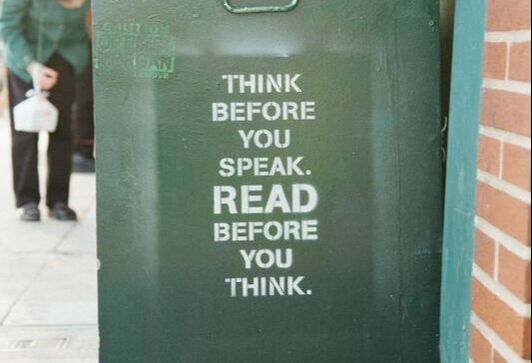
The Rapture of Being Alive
Two Hymns by Sheri D. Kling
---
God as Singer, God as Song
by Sheri Kling
While all of this “becoming” is a beautiful thing, for those of us in the midst of upheavals and changes, life can feel quite chaotic, random, and difficult. Yet it has always been my sense that there is a certain grace within the chaos of life because the Divine is at work at its very heart. When order trembles with something new, we witness an ineffable holiness that is raw and powerful. Yet, we can also tune our ears to hear the strains of the Song that the Divine Singer is singing, which I believe is the song that our hearts yearn to sing as well.*Sheri D. Kling, Re-Tuning Religion in a Process-Relational Key, in Preaching the Uncontrolling Love of God
---
The Rapture of Being Alive
Several years ago I developed a slideshow naming six ways that the God of open and relational (process) theology can be understood and experienced. (Click here.) We can feel and know God as:
- The Universe itself as interwoven with divine love
- A Companion to the world's joys and sufferings
- A Guiding and animating spirit in the universe
- The Spirit of Creative transformation
- The Mind of the universe
- The everlasting Song of the universe
Many open and relational theologians like to speak of God as a luring presence in the universe; that's what I had in mind by a Guiding Spirit and the Spirit of Creative Transformation. But a way that is especially important to all of us who love music is the sixth way. God as the Song of the universe.
It is not that everything that happens in the universe is the divine song. Terrible things happens that are not musical in a divine way. But much music that we hear does indeed resonate with a song we hear in our heart as well: a song of grace, of yearning, of creative transformation, of longing, of love. As Sheri Kling makes clear, we hear the strain of this song within us, even in the hardest of times, and we are moved by its holiness, raw and powerful. She often speaks the whole-making nearness of God. I hear that nearness in her music.
*
I thought of this sixth way when I read her essay "Re-Tuning Religion in a Process-Relational Way" in the anthology: "Preaching the Uncontrolling Love of God." In this essay she introduces and discusses two hymns she has written: "We All are Related" and "Love is Perfect Power." I also thought of the sixth way when I found versions of her singing the hymns on Youtube. (Scroll down and listen.) I have heard her before, many times, and I think her voice is gorgeous. I'm hoping that, in heaven, there are angels that sound like Sheri. To me you can hear in her singing not only a conviction but also a hope, not only an affirmation but an aching. The angels in heaven must be like this, too. Surely they share in the aching of living beings on earth - in the heartbeat of billions of bodies just wanting to be.
*
Here are some of the lyrics in “We All are Related”:
God is embodied, Word become flesh, in all that we see.Deeply incarnate in every bird, in every tree.In the heartbeat of billions of bodies just wanting to be.God is embodied, soul of the world, breathing in me.
As I read these lyrics, I ask myself: "Billions of bodies wanting to be what? What do the myriad creatures of our universe—quantum events, living cells, plants, animals, stars, galaxies—want to be? What are they seeking and perhaps even aching for?"
*
At the end of her essay, Sheri Kling offers what, for me, is as good answer as I can imagine: "They want to be fully alive in whatever ways are possible for them!" She writes:
But I believe there are many of us who ache for what Joseph Campbell described in The Power of Myth as 'the rapture of the experience of being alive'; people who, like me, can sometimes glimpse the Oneness of a grace-filled Reality that exults in embodiment, even with its heart-rending sorrows.
I believe there are those who seek to align themselves with the sacred flow of healing love, dynamism, and adventurous creativity that can bring relationship, reconciliation, transformation, and abundant life to all. Let us now sing those hopes into being. - Sherri Kling
To be sure, in this passage Sheri is speaking primarily of human experience, but the whole of “We Are All Related” is about how we humans are kin to other creatures, to other “bodies just wanting to be.” It is not a stretch to imagine that they, too, seek full aliveness. We seek the rapture of being alive, but so do dogs and cats and fish and insects. We are related.
*
For my part, I am grateful for the quotation from Joseph Campbell. The quote reminds me of a question a student of mine asked me once, while taking a seminar on Whitehead's "Process and Reality." She had been reading Campbell and knew the 'rapture' quote. She asked:
If you take Whitehead's philosophy seriously, what is most important in life: the rapture of being alive or finding meaning in life?
Knowing that Whitehead is a both/and thinker, but not wanting to dismiss her, I offered a pat and predictable answer. I responded:
"Maybe that's a false dichotomy. We can have it both ways. The rapture of being alive is the meaning of life."
She, [the student], would have none of it! She was surrounded by people who think that making or finding something called "meaning" is the purpose of life, and typically by 'meaning' they have something somewhat intellectual in mind, like having a story or narrative in terms of which the many moments of life can be situated. Or maybe having 'meaning' because you are engaged in 'meaningful' activities such as loving other people and helping make the world a better place. The meaning-seeking people she knew thought the rapture of being alive, while enjoyable, is not really an end in itself. It lacks narrative and ethics. She said:
"The insects will never understand. They don't seek meaning, they seek life."
*
I know that Sheri Kling would certainly think that having stories and being ethical are part of what gives human life meaning. She might well agree with my pat answer. But she (Sheri Kling) also speaks about the "many of us who ache for the rapture of the experience of being alive." It seems to me that this aching is not simply for meaning; it is for being alive. And this we share with all creatures: Insects, microbes, plants, animals, fungi, and all forms of life. Each entity, from the smallest bacterium to the largest whale, aches for aliveness. We all are related.
*
Back to my student. She reminded me of Whitehead's idea in "Process and Reality" that in every moment of experience, we are aiming at satisfaction: the self-enjoyment of being one among many. She said, "This sounds to me more like 'the rapture of being alive' than like 'meaning.'"
I think she had a point. True, in many of his writings, Whitehead speaks of the importance of love and peace; he seems to think that Love is the very heart of God, and in "Adventures of Ideas" he says that Peace is the consummation of a soul's journey. Such language sounds like "meaning" language. But he also says, in "Process and Reality," that every actual entity, every concrescing subject anywhere in the universe, is aiming at, in his words, "intensity" of experience, and he describes the enjoyment of such intensity as self-enjoyment. Such language sounds like "rapture" language to me. Perhaps in human life peace and love are forms of rapture, but there is more to rapture than peace and love. Sheer survival, in some circumstances, is rapture enough.
*
Whitehead speaks of God as “a fellow sufferer who understands.” What does God understand about us? Here, too, Sheri Kling offers a key. The song includes these two lines:
God’s Spirit moves toward abundant life,so that all who live may flourish.
Perhaps what God understands is the desire within each living being to flourish, to be fully alive, to enjoy the intensity of momentary rapture.
Certainly, this is what we ourselves understand about other people and other creatures when we love them. We do not just love their meaning, whatever that is. Nor do we simply understand their states of feeling: their sufferings, their joys, their heartaches, their pleasures. We understand their desire to flourish, to be fully alive.
*
Sheri Kling offers us an image of God who likewise seeks the flourishing of each and all, and thus who understands the naturalness and beauty of their desire. The image of God she offers is not that of a sky-god above the world, overseeing it from afar. It is of a holiness in life itself, powerful and raw, yet also more than life itself in that it understands us. I repeat a quote from above:
It has always been my sense that there is a certain grace within the chaos of life because the Divine is at work at its very heart. When order trembles with something new, we witness an ineffable holiness that is raw and powerful.
Can it be that this ineffable holiness is also tender and personal? A fellow sufferer who understands not only our own lives but the lives of all who ache for satisfaction?
*
Sheri Kling speaks of God as Spirit and as Oneness and as Sacred Flow. I especially like sacred flow, because it reminds me of music. You cannot grasp the flow of music, but you can feel its presence and flow with it. I think God is like this. Faith is a form of flowing.
We cannot easily picture the flow, but with help from Sheri Kling, we can hear it. The key to a good hymn, of the sort Sheri Kling composes and sings, is not simply that it gives you guidelines for living and evokes intuitions about life's meanings. It is also that, in its melodies and in its tones, you can hear the aching and the ineffable holiness. An aching for life in its fulness, even if momentarily realized.
That's the love to which her hymns point, not through words alone but through the soulfulness of her singing. God is, after all, the Soul of the universe: the luring companion to each and all, luring toward wholeness, toward aliveness, a companion to all the suffering and to the joy. This spirit of uncontrolling love is not exactly "above" the universe, although more than it, but rather with the universe, in loving way.
My favorite sermons are sung. Sheri Kling's songs are among my favorite sermons.
- Jay McDaniel
---
Sheri Kling “We All Are Related”
by Sheri Kling | Apr 5, 2020
We All Are Related
by Sheri Kling
(Choral chant)
Fiery brilliance, cooling gas, condensing gravity
Atoms forming stars and carbon-fueled diversity
Earth with sky and oceans, molecules then multiply
Stardust is the mater of the cosmos and all life.
(Congregation)
We all are related, woven as threads in earth’s tapestry
A kinship creation, depending on all in deep harmony.
Internally formed by each other, creative and free
We all are related, wholly and actively.
The world is becoming, the future of God is luring us there.
Grace within chaos, the pow’r of the new, holiness bare.
The Singer is singing the Song we are yearning to share.
The world is becoming, process is everywhere.
God is embodied, Word become flesh, in all that we see.
Deeply incarnate in every bird, in every tree.
In the heartbeat of billions of bodies just wanting to be.
God is embodied, soul of the world, breathing in me.
All things have value, all the way up and all the way down.
God is redeeming the lowliest stone and the glorious crown.
Christ is the pattern in every atom around.
All things have value, whispering Spirit Sound.
We need liberation from seeing our world as dead-matter machines
All creatures as neighbors, a healing embrace, so held we are free.
Entraining our rhythms to the heartbeat of Life consciously,
We all are related,
In a world that’s becoming,
Where God is embodied,
And all things have value,
We are liberated, affirming the world we see.
© 2011 Sheri D. Kling, Waking Woman Music, ASCAP
---
Sheri Kling “Love is Perfect Power”
by Sheri Kling | Jun 11, 2020
Love is Perfect Power
by Sheri Kling
Verses to the tune of “The King of Love My Shepherd Is”
Refrain
Love is perfect, perfect power,
Perfect, perfect power is love. (repeat)
In community we all belong;
We are formed through incarnation.
So when the powers press the weak,
We call for liberation.
This world is full of fear and rage;
Domination steals all choices.
Compassion, boldness, hope, and strength
Empower silent voices.
God’s Spirit moves toward abundant life,
So that all who live may flourish.
Injustice threatens everyone;
Rise up, so all are nourished.
Love is perfect, perfect power,
Perfect, perfect power is love. (repeat)
Our God does not dominate the world;
We choose each realization.
For perfect love seeks not control,
God’s power is persuasion.
We now must turn from the ordered past,
Seeking God’s imagination.
Divine adventure brings new risks,
for wholeness and salvation.
So we stand and meet all force with love,
Tending seeds of transformation.
We bring the power that can redeem;
God’s reconciliation.
Love is perfect, perfect power,
Perfect, perfect power is love. (repeat)
© Sheri D. Kling, Waking Woman Music, ASCAP











